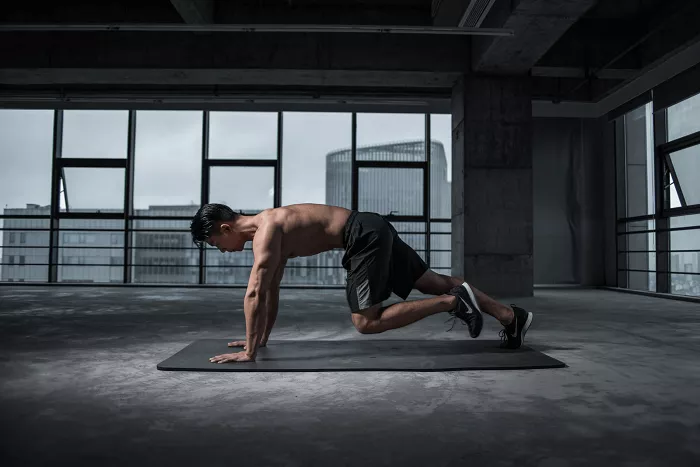Anxiety does not only affect your mind. It also creates physical tension in your muscles. Many people who experience chronic stress or anxiety develop stiff shoulders, clenched jaws, or back pain without realizing these symptoms are directly linked to their mental state. The good news is that anxiety-related muscle tension can be managed effectively with the right techniques.
This guide will explain why anxiety causes muscle tension and provide detailed, practical methods to release it. Whether you experience occasional stress or long-term anxiety, these strategies will help your body relax and function better.
Why Anxiety Causes Muscle Tension
When you feel anxious, your nervous system triggers the “fight or flight” response. This survival mechanism prepares your body to react to perceived threats by tightening muscles for quick movement. However, if anxiety becomes chronic, your muscles remain in a constant state of tension, leading to discomfort, pain, and even long-term postural problems.
Common areas affected by anxiety-induced muscle tension include:
Neck and shoulders: Many people unconsciously hunch their shoulders when stressed, leading to stiffness.
Jaw: Teeth grinding or clenching, especially at night, is a common sign of anxiety.
Back: Poor posture due to stress can cause chronic lower or upper back pain.
Stomach: Anxiety often creates a “knot” sensation in the stomach due to muscle contractions.
Hands and legs: Trembling, stiffness, or restless legs can result from prolonged tension.
Understanding this mind-body connection is crucial for effective relief.
Effective Ways to Relieve Anxiety Muscle Tension
Progressive Muscle Relaxation (PMR)
Progressive Muscle Relaxation is a well-researched technique that helps reduce tension by systematically tensing and relaxing different muscle groups. Follow these steps:
- Find a quiet, comfortable place to sit or lie down.
- Begin with your feet: Tense them for 5 seconds, then release completely.
- Move upward, working through each muscle group (calves, thighs, abdomen, hands, arms, shoulders, neck, and face).
- Focus on the contrast between tension and relaxation in each area.
Practicing PMR daily trains your body to recognize and release unnecessary tension.
Deep Breathing Exercises
Shallow, rapid breathing worsens muscle tightness. Deep breathing activates the parasympathetic nervous system, which promotes relaxation. A highly effective method is the 4-7-8 technique:
- Inhale deeply through your nose for 4 seconds.
- Hold your breath for 7 seconds.
- Exhale slowly through your mouth for 8 seconds.
Repeat this cycle 3 to 5 times whenever you feel tension building.
Stretching and Gentle Movement
Stretching helps release tight muscles and improves circulation. Simple stretches for anxiety relief include:
Neck rolls: Slowly tilt your head from side to side to relieve neck tension.
Shoulder shrugs: Lift your shoulders toward your ears, hold briefly, then release.
Child’s pose: A yoga position that stretches the back and promotes relaxation.
Even a short walk can help reduce stiffness caused by stress.
Mindfulness and Body Scans
A body scan meditation increases awareness of tension and helps release it:
- Close your eyes and focus on your toes.
- Gradually shift your attention upward, noticing any areas of tightness.
- Breathe into tense spots and visualize them softening.
This practice prevents tension from accumulating unnoticed.
Heat Therapy
Heat relaxes muscles by increasing blood flow. Effective methods include:
- Taking a warm shower before bed.
- Using a heating pad on stiff shoulders or neck.
- Soaking in an Epsom salt bath (magnesium aids muscle relaxation).
Reduce Caffeine and Stay Hydrated
Caffeine stimulates the nervous system, increasing muscle tension and anxiety. If you consume coffee or energy drinks, try reducing your intake. Additionally, dehydration can cause muscle cramps, so drinking enough water is essential.
Cognitive Behavioral Techniques
Chronic anxiety keeps muscles tense. Cognitive Behavioral Therapy (CBT) techniques can help by changing stress-inducing thought patterns. Useful strategies include:
Identifying triggers: What situations make you tense up?
Challenging negative thoughts: Are your worries realistic or exaggerated?
Practicing self-compassion: Avoid self-criticism, which increases stress.
Massage and Self-Massage Tools
Professional massages release muscle knots, but self-massage can also be effective:
- Use a foam roller for back tension.
- Roll a tennis ball under your feet or against tight shoulder muscles.
- Apply gentle pressure to your temples to relieve jaw tension.
Improve Sleep Habits
Poor sleep exacerbates muscle tension. Enhance sleep quality by:
- Maintaining a consistent sleep schedule.
- Avoiding screens before bedtime.
- Using relaxation techniques if anxiety keeps you awake.
Seek Professional Help if Needed
If muscle tension persists despite self-care, consider consulting:
- A therapist for anxiety management.
- A physical therapist for chronic pain relief.
- A doctor to rule out underlying medical conditions.
Conclusion
Anxiety-related muscle tension is a common issue, but it does not have to be permanent. By incorporating relaxation techniques, physical movement, and stress management strategies, you can train your body to remain relaxed and pain-free. Start with one or two methods and gradually integrate more into your routine. Over time, your muscles will become less reactive to stress, improving both physical comfort and mental well-being.
If tension remains severe despite these efforts, professional guidance can provide further relief. Taking proactive steps today will help you achieve a more relaxed and balanced life.
Related topics:
- 8 Methods To Relieve Muscle Tension From Anxiety
- Do Massages Help Anxiety?
- Can Reading Help Anxiety?


